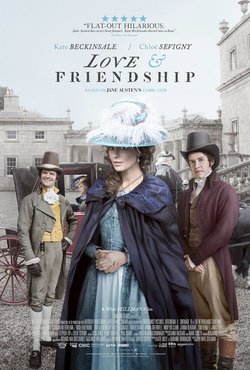A blog formerly known as Bookishness / By Charles Matthews
"Dazzled by so many and such marvelous inventions, the people of Macondo ... became indignant over the living images that the prosperous merchant Bruno Crespi projected in the theater with the lion-head ticket windows, for a character who had died and was buried in one film and for whose misfortune tears had been shed would reappear alive and transformed into an Arab in the next one. The audience, who had paid two cents apiece to share the difficulties of the actors, would not tolerate that outlandish fraud and they broke up the seats. The mayor, at the urging of Bruno Crespi, explained in a proclamation that the cinema was a machine of illusions that did not merit the emotional outbursts of the audience. With that discouraging explanation many ... decided not to return to the movies, considering that they already had too many troubles of their own to weep over the acted-out misfortunes of imaginary beings."--Gabriel García Márquez, One Hundred Years of Solitude
Search This Blog
Friday, October 21, 2016
Love & Friendship (Whit Stillman, 2016)
Jane Austen's greatest novels -- by which I mean Emma, Pride and Prejudice, Mansfield Park, and Persuasion -- do tend to run to formula. The heroines are all marriageable young women who for one reason or another are having trouble finding a mate. They are usually put in jeopardy of marrying scoundrels -- Emma to Frank Churchill, Elizabeth Bennet to Mr. Wickham, Fanny Price to Henry Crawford -- or fools -- Emma to Mr. Elton, Elizabeth to Mr. Collins -- or in Anne Elliot's case not at all, a calamitous fate in the world of the novels. Eventually, however, they find their Mr. Knightley or Darcy or Edmund or Capt. Wentworth and live happily ever after. The pattern is so familiar that it persists to this day in romance novels, but it's not why we read Jane Austen. We read her for the wit, the moral observations, the deft interplay of personalities, which is why even the best movies made from her books are slightly unsatisfying: Film can't do justice to what's on the page. And that's why I think Love & Friendship may be the best Jane Austen movie ever: What's on the page in its source, Lady Susan, the epistolary novella she never submitted to a publisher, departs radically from the formula. The titular heroine (played brilliantly in the film by Kate Beckinsale) is herself the scoundrel, more in the mold of Henry Crawford's sister, Mary, in Mansfield Park than any of Austen's more familiar heroines. And she winds up marrying the fool, the wealthy Sir James Martin (Tom Bennett), whom she originally planned as a husband for her daughter, Frederica (Morfydd Clark), after having courted Reginald DeCourcy (Xavier Samuel), who winds up marrying Frederica. Whit Stillman's screenplay is a brilliant transformation of what's on the pages of the source, where the point of view is limited to that of the letter writers. The freedom to manipulate point of view in the film allows him to play with inverting the formula: In the film, Reginald takes on the role usually played by Austen's heroines, i.e., almost marrying the scoundrel. With Bennett's considerable help, Stillman makes Sir James Martin into one of the funniest fools ever, so blithely out of it that he is astonished to learn that Frederica reads "both verse and poetry" and thinks that Moses delivered 12 commandments -- after being told that there are only ten, he tries to decide which two he should discard. He also winds up after his marriage to Lady Susan in a ménage à trois that includes Lord Manwaring (Lochlann O'Mearáin), but he remains apparently unaware that Manwaring is her real lover and the father of the child she is carrying. That last could never have found its way into print in Austen's day, of course, but Stillman succeeds in integrating it into a convincingly Austenian context. The performers, which also include Chloë Sevigny, Jemma Redgrave, James Fleet, and in a cameo role, Stephen Fry, are uniformly fine. If there is a flaw to the film, it may be that it's "rather too light, and bright, and sparkling," which is the criticism that Austen made of Pride and Prejudice. But if it sometimes feels like a parody of a Jane Austen novel, it's a masterly one.
